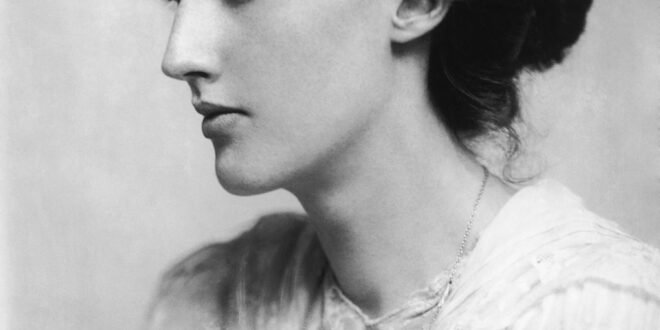Virginia Woolf, a pioneering figure in the realm of modernist literature, continues to captivate readers with her groundbreaking works and profound insights into the human condition. Through her experimentation with narrative form, stream-of-consciousness writing, and exploration of complex themes such as gender, identity, and mental health, Woolf left an indelible mark on the literary landscape of the 20th century. In this article, we delve into the life and legacy of Virginia Woolf, tracing her evolution as a writer and examining the enduring impact of her contributions to literature and feminist discourse.
Early Life and Influences:
Virginia Woolf was born Adeline Virginia Stephen on January 25, 1882, into an affluent and intellectually vibrant household in London, England. Raised in an environment steeped in literature and culture, Woolf was exposed to the works of prominent Victorian writers such as Charles Dickens and George Eliot from a young age. Tragically, her childhood was marked by the loss of her mother at the tender age of 13, followed by the deaths of her half-sister and father in subsequent years. These early experiences of loss and grief would profoundly shape Woolf’s worldview and find expression in her later writings.
Literary Career and Innovations:
Despite struggling with mental health issues throughout her life, Virginia Woolf embarked on a literary career that would revolutionize the way we think about the novel. Alongside her husband, Leonard Woolf, she founded the Hogarth Press in 1917, through which she published her own works as well as those of other modernist writers. Woolf’s writing is characterized by its experimental approach to form and structure, as seen in novels such as “Mrs. Dalloway,” “To the Lighthouse,” and “Orlando.” Her pioneering use of stream-of-consciousness narration and exploration of interiority challenged conventional notions of storytelling and paved the way for future generations of writers.
Feminism and Social Commentary:
In addition to her contributions to literature, Virginia Woolf was a vocal advocate for women’s rights and a central figure in the feminist movement of the early 20th century. Her seminal essay, “A Room of One’s Own,” remains a cornerstone of feminist literature, in which she argues for the importance of economic independence and creative autonomy for women. Woolf’s writings on gender, power dynamics, and the constraints of societal expectations continue to resonate with contemporary audiences, sparking important conversations about equality and representation in literature and beyond.
Personal Struggles and Mental Health:
Behind Virginia Woolf’s literary brilliance lay a lifelong battle with mental illness, which manifested in debilitating bouts of depression and anxiety. These struggles often found their way into her writing, providing a raw and unflinching glimpse into the inner workings of a troubled mind. Tragically, Woolf’s mental health issues culminated in her untimely death on March 28, 1941, when she drowned herself in the River Ouse near her home in Sussex. Her passing marked the end of a remarkable literary career and left an enduring legacy that continues to be celebrated and studied to this day.
Legacy and Cultural Impact:
Virginia Woolf’s legacy as a writer and thinker transcends the boundaries of time and genre, inspiring countless readers and writers across the globe. Her fearless exploration of complex themes and innovative approach to storytelling have cemented her status as one of the most influential figures in modern literature. Woolf’s works continue to be studied in classrooms and revered in literary circles, while her insights into the human psyche and the intricacies of human relationships remain as relevant and thought-provoking as ever.
Critical Reception and Contemporary Relevance:
While Virginia Woolf’s writing was not always met with universal acclaim during her lifetime, her work has since been reappraised and celebrated for its visionary qualities and enduring relevance. Scholars and critics continue to explore the depths of Woolf’s prose, uncovering new layers of meaning and insight with each passing year. Moreover, Woolf’s contributions to feminist theory and the broader discourse on gender and identity continue to inform contemporary discussions and inspire new generations of activists and thinkers.
Conclusion:
Virginia Woolf’s life and work stand as a testament to the power of literature to illuminate the human experience and challenge the status quo. Through her groundbreaking novels, essays, and lectures, Woolf shattered conventions and expanded the possibilities of the written word, leaving an indelible mark on the literary landscape of the 20th century and beyond. As we continue to grapple with issues of identity, equality, and mental health in the 21st century, Woolf’s writings serve as a beacon of insight and inspiration, reminding us of the enduring power of art to provoke, enlighten, and transform.
 Inspirescroll
Inspirescroll




